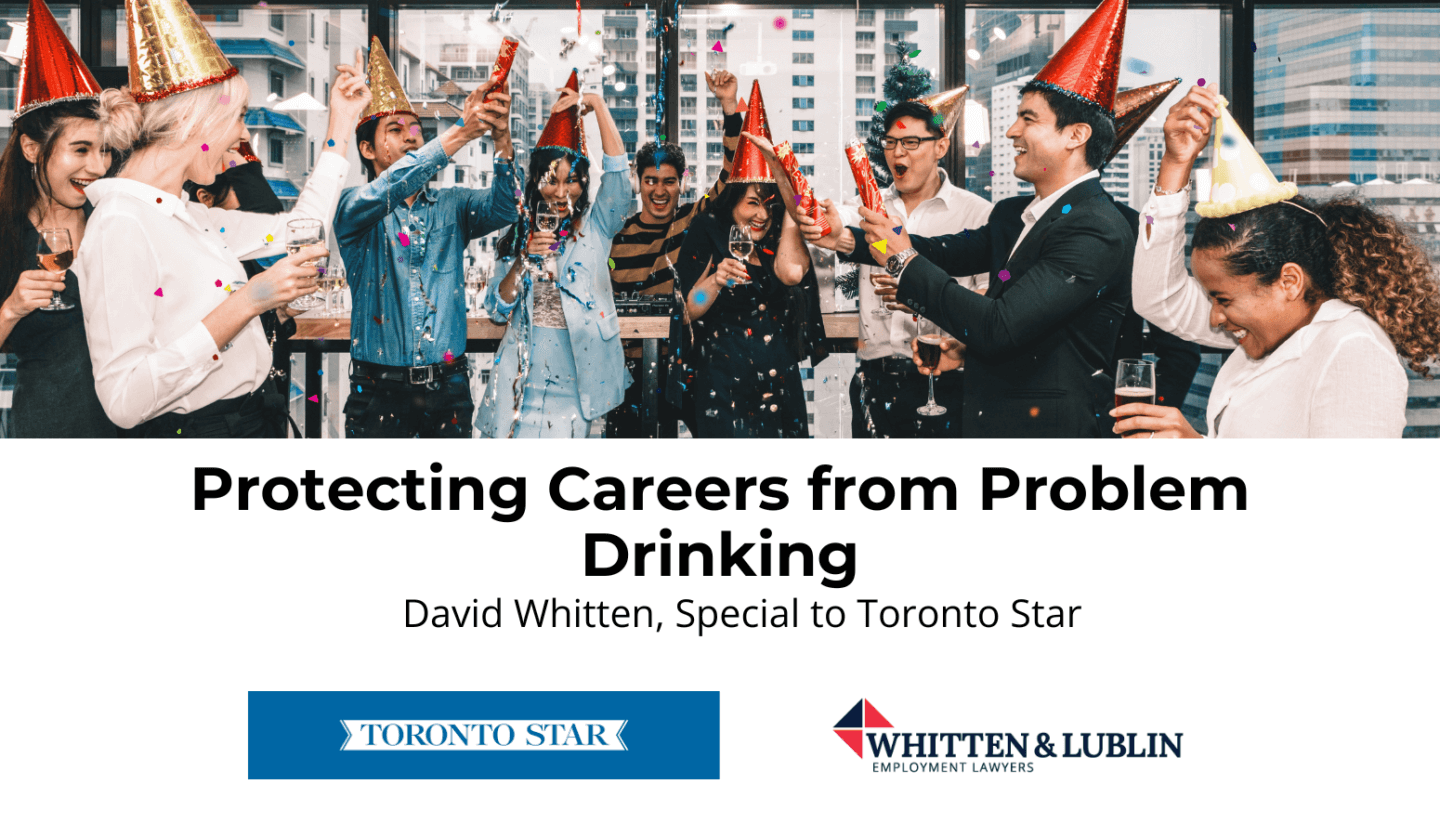
Protecting Careers from Problem Drinking
Published By: Toronto Star
Legal protection for issues with problem drinking in the workplace has been in place for decades, however it’s only engaged if the person is honest with their employer about their challenges with alcohol.
The holiday season, for many, represents an occasion of giving and moments spent with friends and family. For others like me, it’s a reminder of alcohol-fueled antics — some of the lowest points in my life, where addiction and anxiety were ruining my physical and mental health. As an employment lawyer, I’m also acutely aware of how the law protects people whose drinking negatively impacts their employment — if they’ll admit there is a problem.
I am not alone. Alcohol is a leading cause of disability, accidents, and mental health concerns. And often unspoken, it’s impacted many careers. I see cases every year in my employment law practice where someone has either been ostracized, disciplined, or terminated at work for behaviour resulting from overconsumption, especially during holiday events.
Legal protection for issues with problem drinking in the workplace has been in place for decades, however it’s only engaged if the person is honest with their employer (and themselves) about their challenges with alcohol. Regrettably, the extent to which people engage this protection is correlated to society’s perception of alcoholism.
Eight years ago, I begrudgingly came to admit my relationship with alcohol had transcended mere celebration or relaxation and had begun to affect my life negatively. The holiday season stirred a lot of anxiety within me, as it does many. On one hand, work events where alcohol was being served and embraced was exciting. On the other hand, there was a deep-rooted fear I would not be able to stop consuming once I got on a roll and could potentially land myself in hot water.
Initially, I prided myself on “going hard” at work events, leading the charge to the after party. I fancied myself earning the respect of my peers with my exemplary work performance by day and booze-soaked triumphant evenings. The next morning, shame often crept in while I reflected on my behaviour.
As the years went by, drinking began to take over. With a drink in hand, I felt like I was on top of my game. However, the hangovers, anxiety, and stress that followed became overwhelming.
A large component of problem drinking is shame and denial. Clients facing the consequences of their drinking in the workplace are often reluctant to admit their behaviour was related to alcohol issues. This reluctance to ask for help is directly related to historic stigma. And denial may make the protection the law affords in the workplace elusive or unavailable altogether.
Yet “alcohol use disorder” affects employees at all levels. And the good news is treatment and recovery programs are widely available. However, more education is required for both employees and employers. Otherwise, the law is a moot point if both, for different reasons, fear the repercussions associated with addressing alcoholism in the workplace.
I was fortunate to get the help I needed. I now understand that I have a strong “allergy” to alcohol that causes me to overconsume, often leading to bad behaviour and poor form; hence, best avoided at all costs.
Canadian human rights legislation considers “alcohol use disorder” to be a “disability” that must be accommodated by an employer “to the point of undue hardship.” This means that employers cannot just terminate or discipline someone who may suffer from this condition. Employers are required to assist in exploring treatment options and give sufficient latitude for the person to seek necessary help, including recognizing and making allowances for relapse.
Alcoholism is not about a lack of willpower; it’s a disease that can be treated. A better understanding of this dynamic is essential on both sides to effectively address the issue. For employees, the best way to engage the protection of the law is to be brutally honest with yourself and your employer regarding a problematic relationship with alcohol. Otherwise, there is very little chance of protecting your job and career.



